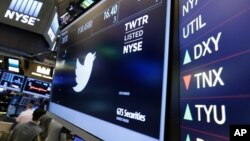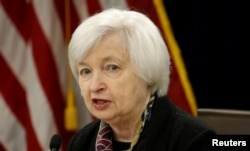U.S. indices traded lower Friday, aligning with foreign markets as investors took a step back following a three-day rally.
Apple put pressure on the Dow Jones industrial average with a research report that said iPhone 7 unit sales were down 25 percent year over year versus the 6s model. Meanwhile, Facebook shares got hit for a miscalculation in video metrics.
Crude oil also weighed on markets because of supply glut concerns. OPEC will hold an informal meeting of member countries September 26-28 in Algeria to help stabilize the oil market, which non-OPEC Russia will also attend. Crude oil fell sharply just before noon after Bloomberg reported Saudi Arabia doesn't expect the Organization of Petroleum Exporting Countries to reach an agreement when it meets later next week.
Twitter sale?
Twitter shares spiked nearly 21 percent Friday following a report from CNBC's David Faber, citing anonymous sources, that the company had received expressions of interest from several technology or media companies and might receive a formal bid shortly. Potential suitors included Google and salesforce.com. As a result, internet stocks saw active trading, although the companies declined to comment.
Twitter has been a near-constant focus of takeover speculation amid persistently disappointing sales and user engagement.
Interest rates
Global central bank activity was again the catalyst for upside momentum earlier in the week. Even though the Federal Reserve's Federal Open Market Committee did not move rates higher Wednesday, it hinted rather strongly that an increase was going to happen this year.
"The real pressure for the Fed to start increasing rates looks to be internal. The economic data does support a hike, and it has for some time. What's different now is that 14 of 17 Fed officials want at least one rate hike by the end of the year, and three of the 14 felt strongly enough about it to dissent from the decision to keep rates stable," said Brad McMillan, chief investment officer at Commonwealth Financial Network.
For the Fed under Janet Yellen's leadership, "that level of dissent is very unusual, and the weight on the side of an increase suggests that it has become the default decision for December with the November meeting just days shy of the national election," he said.
That would appear to be hawkish at first blush, but what did the Fed say about future rate hikes that the market digested so well?
"Beyond December, though, the Fed is still dovish. Although faster rate increases remain on the table, the expected end point is now only around 2.9 percent, well below past peaks, and the expected level at the end of 2018 is around 1.9 percent, down from 3.4 percent last September," McMillan said.
The next key event for Fed watchers is a speech by Yellen in late September at a Kansas City Fed event. The minutes of today's meeting will be released on October 10. The next FOMC meeting is on November 12. There will not be a news conference or a new set of data or economic forecasts released at that meeting.
Trading week ahead
The first presidential debate is expected to be the most watched ever, with an audience that could reach over 100 million viewers. It is also the next near-term catalyst in the markets, if either candidate can emerge as the clear winner.
"Given recent headlines, for example, both financial services and health care sectors will likely be areas of critical focus," said Nick Colas, chief market strategist at Convergyx. "Also, both candidates will likely highlight the need for more cybersecurity and help boost investor sentiment for that group."
Fed policy, key data
Attention will again turn to monetary policy as 10 Federal Reserve members will be on the speaking circuit, including Yellen, largely focusing on minority and community banking and the economic outlook. In addition the Bank of Japan minutes from July will be released, and the bank's governor, Haruhiko Kuroda, is scheduled to speak at two events.
In addition to Fed speakers, there are several key sets of economic data to be released, including New Homes Sales, Consumer Confidence, Durable Goods Orders, GDP, International Trade in Goods, Personal Income and Outlays, and Consumer Sentiment.
Earnings
The earnings calendar remains light until the unofficial start of the season on October 10, but a few companies whose results could affect markets will be reporting, including Nike, Paychex, Pepsi and Costco.





